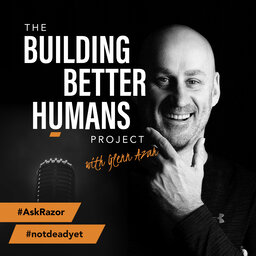Another chat to help all the parents out there.
ADVENTURE WITH ME
In 1 playlist(s)
Building Better Humans Project
Inspiration, tips and advice to help you conquer your life, one day at a time. Glenn Azar is a forme…Social links
Follow podcast
Recent clips

Kickstart 16 - Habit Stacking for Momentum
03:49

Kickstart 15 - The Power of Consistency
05:21

Kickstart 14 - Choose Your Hard
03:46
 Building Better Humans Project
Building Better Humans Project